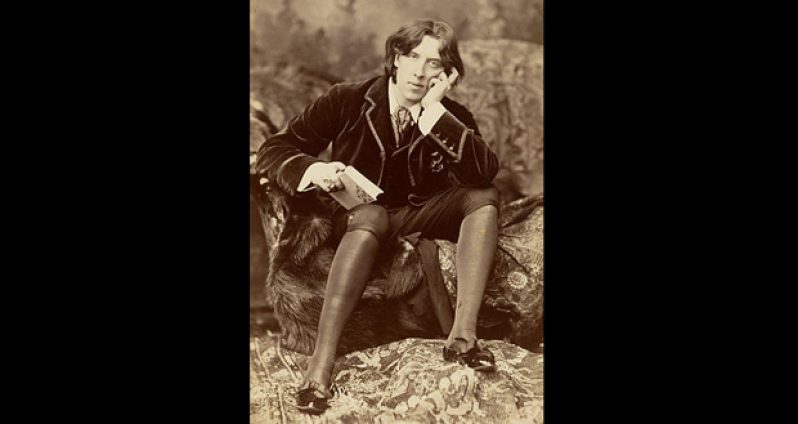Salome is a one-act play that was written in 1891 by Oscar Wilde. The play is an expansion of the Biblical tale in the New Testament, where Salome, stepdaughter of Herod Antipas, dances so well at a banquet that Herod promises to give her anything she desires. Salome, prompted by her mother, requests the head of John the Baptist (Iokanaan in the play), a request to which Herod unwillingly concedes. Wilde’s version alters some characters slightly, presenting Herod as much more lustful and Salome as a doomed figure who tries to gain some amount of power as a woman in a patriarchal world. Despite these slight alterations to the characters, the plot of the play remains mostly the same as the story found in the Bible. What makes the play truly fantastic is Wilde’s presentation of his various motifs and themes, particularly through his extensive use of symbolism.
The moon, for example, is one of Wilde’s most blatant uses of symbolism in the play. The moon represents Salome herself and the playwright establishes this not only through Salome’s self-identification with the moon by proclaiming the moon, like her, to be a virgin, but also in the way the moon changes towards the end of the play and Herod proclaims it to be “red as blood” – a symbolic change of colour that represents the bloodshed to come and the shift in Salome’s character (remember the moon is a symbol of her) from a beautiful, virginal princess to a woman who is lusting for the death of Iokanaan.
Also of interest is Wilde’s use of the motif of “looking” throughout the play. One of the uses of this motif is to achieve the feminist goals of the text. Salome, as a young woman of extreme beauty living in ancient times, is subject to the male, patriarchal gaze. Therefore, when Salome complains, in the beginning of the play, asking, “Why does the Tetrarch [Herod] look at me all the while with his mole’s eyes shaking under his eyelids? It is strange that the husband of my mother looks at me like that,” we immediately become aware of Salome’s precarious (and unfortunate) position as a woman in that society and as a woman in Herod’s household. Many men in the play look at Salome and comment on her looks. Throughout the play, there are also characters who warn others not to look at her. This may have been Wilde’s way of addressing the sexist gaze that women are often exposed to. Indeed, at the end of the play when Salome has successfully had Iokanaan killed, Herod becomes fearful and all too wary of the fact that it is his sexualizing of Salome through his constant looking at her that may have caused the girl to demand the death of the prophet, a man of god, whom Herod feared, thereby ensuring that she exacts a sort of vengeance against Herod. Herod’s proclamations after Iokanaan’s death – “I will not look at things… Put out the torches! Hide the moon! Hide the stars!” – reflects his desire to be in darkness and longer see, and shows that he is aware of how his constant “looking” at his stepdaughter has led to death in the palace.
Wilde’s use of such literary techniques ensures that the play remains as strong when read as it is when performed.
Oscar Wilde’s Salome
SHARE THIS ARTICLE :
Facebook
Twitter
WhatsApp












